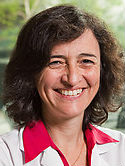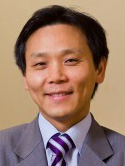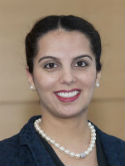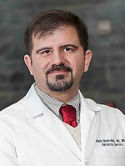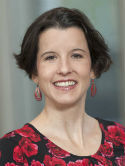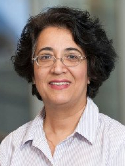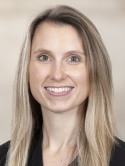Development and implementation of an interdisciplinary telemedicine clinic for older patients with cancer—Preliminary data Journal Article
| Authors: | Alexander, K.; Hamlin, P. A.; Tew, W. P.; Trevino, K.; Tin, A. L.; Shahrokni, A.; Meditz, E.; Boparai, M.; Amirnia, F.; Sun, S. W.; Korc-Grodzicki, B. |
| Article Title: | Development and implementation of an interdisciplinary telemedicine clinic for older patients with cancer—Preliminary data |
| Abstract: | Background: Frailty assessment is an important marker of the older adult's fitness for cancer treatment independent of age. Pretreatment geriatric assessment (GA) is associated with improved mortality and morbidity outcomes but must occur in a time sensitive manner to be useful for cancer treatment decision making. Unfortunately, time, resources and other constraints make GA difficult to perform in busy oncology clinics. We developed the Cancer and Aging Interdisciplinary Team (CAIT) clinic model to provide timely GA and treatment recommendations independent of patient's physical location. Methods: The interdisciplinary CAIT clinic model was developed utilizing the surge in telemedicine during the COVID-19 pandemic. The core team consists of the patient's oncologist, geriatrician, registered nurse, pharmacist, and registered dietitian. The clinic's format is flexible, and the various assessments can be asynchronous. Patients choose the service method—in person, remotely, or hybrid. Based on GA outcomes, the geriatrician provides recommendations and arrange interventions. An assessment summary including life expectancy estimates and chemotoxicity risk calculator scores is conveyed to and discussed with the treating oncologist. Physician and patient satisfaction were assessed. Results: Between May 2021 and June 2022, 50 patients from multiple physical locations were evaluated in the CAIT clinic. Sixty-eight percent was 80 years of age or older (range 67–99). All the evaluations were hybrid. The median days between receiving a referral and having the appointment was 8. GA detected multiple unidentified impairments. About half of the patients (52%) went on to receive chemotherapy (24% standard dose, 28% with dose modifications). The rest received radiation (20%), immune (12%) or hormonal (4%) therapies, 2% underwent surgery, 2% chose alternative medicine, 8% were placed under observation, and 6% enrolled in hospice care. Feedback was extremely positive. Conclusions: The successful development of the CAIT clinic model provides strong support for the potential dissemination across services and institutions. © 2023 The American Geriatrics Society. |
| Keywords: | cancer chemotherapy; clinical article; aged; patient satisfaction; cancer surgery; cancer radiotherapy; antineoplastic agent; neoplasm; neoplasms; cancer immunotherapy; melanoma; metastasis; breast cancer; clinical assessment; prevalence; risk; cancer hormone therapy; hospital; disease severity; hematologic malignancy; head and neck cancer; diabetes mellitus; dementia; comorbidity; urinary tract cancer; transient ischemic attack; physician; liver cancer; aging; cognitive defect; alternative medicine; feedback system; senescence; malnutrition; atrial fibrillation; coronary artery disease; life expectancy; health care planning; chronic obstructive lung disease; cerebrovascular accident; geriatric assessment; registered nurse; hospice care; gastrointestinal cancer; mild cognitive impairment; female genital tract cancer; telemedicine; pandemic; pharmacist; oncologist; geriatric oncology; workflow; mini-nutritional assessment; humans; human; male; female; article; geriatrician; dietitian; icd-9; multidisciplinary team; remote sensing; malignant neoplasm; potentially inappropriate medication; preliminary data; icd-10; pandemics; coronavirus disease 2019; covid-19; montreal cognitive assessment; asynchronous assessment; hybrid model; deprescription; pancreatobiliary cancer; transit ischemic attack |
| Journal Title: | Journal of the American Geriatrics Society |
| Volume: | 71 |
| Issue: | 5 |
| ISSN: | 0002-8614 |
| Publisher: | Wiley Blackwell |
| Date Published: | 2023-05-01 |
| Start Page: | 1638 |
| End Page: | 1649 |
| Language: | English |
| DOI: | 10.1111/jgs.18267 |
| PUBMED: | 36744590 |
| PROVIDER: | scopus |
| PMCID: | PMC10175129 |
| DOI/URL: | |
| Notes: | Article -- MSK Cancer Center Support Grant (P30 CA008748) acknowledged in PDF and PubMed -- MSK corresponding author is Koshy Alexander -- Export Date: 31 May 2023 -- Source: Scopus |
Altmetric
Citation Impact
BMJ Impact Analytics
MSK Authors
Related MSK Work




